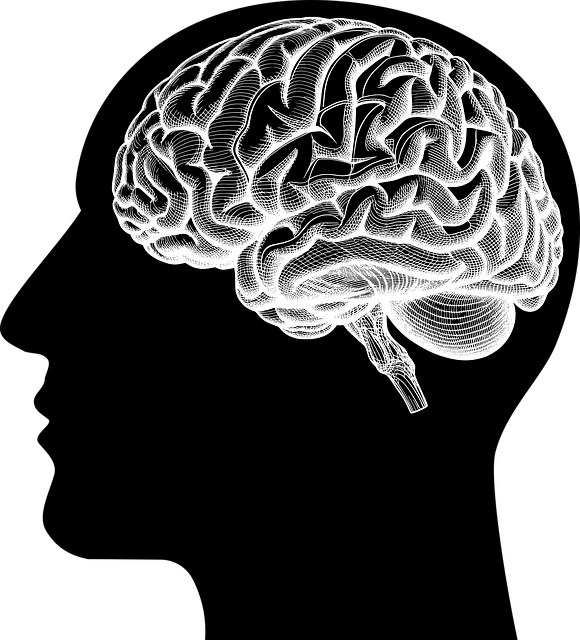Mental wellness coaching programs, inspired by Kaiser Permanente's successful initiatives in Broomfield, are gaining popularity as companies prioritize employee well-being. These personalized sessions teach strategies for managing mental health, fostering compassion, and boosting emotional resilience. By offering tools for stress management, emotional regulation, and healthier lifestyles, these programs combat burnout, enhance productivity, and promote job satisfaction. Kaiser Permanente's comprehensive approach includes structured goal setting, evidence-based techniques like CBT, and regular assessments, ensuring positive client outcomes and continuous program improvement based on measured impact.
Mental wellness coaching has emerged as a powerful tool for individuals and organizations seeking to foster resilience and improve overall well-being. This article explores the development of comprehensive mental wellness coaching programs, drawing insights from renowned initiatives like Kaiser Permanente’s training programs in Broomfield. We’ll delve into defining roles, benefits, effective design strategies, evidence-based practices, and assessment techniques, providing a roadmap for creating impactful coaching experiences.
- Understanding Mental Wellness Coaching: Defining the Role and Benefits for Individuals and Organizations
- Kaiser Permanente Training Programs: A Comprehensive Overview and Impact in Broomfield
- Designing Effective Mental Health Coaching Programs: Key Components and Strategies
- Integrating Evidence-Based Practices into Coaching Sessions: Enhancing Client Outcomes
- Measuring Success and Evaluating Impact: Assessment Tools and Techniques for Mental Wellness Coaching Programs
Understanding Mental Wellness Coaching: Defining the Role and Benefits for Individuals and Organizations

Mental wellness coaching programs are gaining prominence as organizations recognize the importance of employee well-being. These initiatives, akin to Kaiser Permanente’s training programs in Broomfield, go beyond traditional workplace support by offering personalized guidance and strategies for managing mental health. Coaches foster an environment of compassion and understanding, incorporating practices like Compassion Cultivation to enhance emotional resilience among staff.
By investing in such programs, organizations can mitigate the devastating effects of burnout, a growing concern in today’s fast-paced work environments. Mental wellness coaching encourages individuals to develop self-care habits, improve stress management skills, and cultivate a more positive mindset, ultimately leading to increased productivity, job satisfaction, and overall mental health awareness.
Kaiser Permanente Training Programs: A Comprehensive Overview and Impact in Broomfield

Kaiser Permanente Training Programs in Broomfield have emerged as a beacon of hope and support for individuals seeking to enhance their mental wellness. These comprehensive initiatives cater to a wide range of needs, from emotional regulation techniques to advocacy and policy analysis related to mental health. The programs are meticulously designed to empower participants with practical tools for managing stress, cultivating resilience, and fostering healthier lifestyles.
Broomfield residents benefit from these training sessions that prioritize self-care routine development as a cornerstone of better mental health. Through interactive workshops and personalized coaching, Kaiser Permanente’s approach ensures that individuals gain valuable insights into their emotional well-being. This holistic perspective encourages participants to navigate life’s challenges with newfound confidence, making the programs a game-changer in the local mental health landscape.
Designing Effective Mental Health Coaching Programs: Key Components and Strategies

Designing effective mental health coaching programs requires a structured approach that caters to diverse individual needs. At Kaiser Permanente training programs Broomfield, experts emphasize key components such as personalized goal setting, evidence-based techniques, and regular progress assessments. Incorporating strategies like coping skills development and stress management workshops within the organization can significantly enhance employee well-being and prevent burnout.
These programs should offer a holistic approach, addressing not just symptoms but also underlying factors contributing to mental health issues. Regular feedback mechanisms, peer support networks, and flexible delivery formats—including virtual sessions for remote workers—are crucial strategies. By focusing on these elements, mental wellness coaching becomes an empowering tool, fostering resilience and improving overall job satisfaction within the organization.
Integrating Evidence-Based Practices into Coaching Sessions: Enhancing Client Outcomes

Integrating evidence-based practices into mental wellness coaching sessions is paramount for enhancing client outcomes, particularly within the context of programs like those offered by Kaiser Permanente training in Broomfield. These practices provide a structured framework that supports coaches in effectively guiding individuals toward improved mental health and well-being. By incorporating techniques such as cognitive-behavioral therapy (CBT), mindfulness strategies, and stress management techniques, coaches can help clients develop coping skills for managing conditions like anxiety.
This approach not only aids in Anxiety Relief but also promotes long-term Coping Skills Development. Moreover, integrating evidence-based practices allows for comprehensive Risk Management Planning for Mental Health Professionals. Such planning ensures that both the coach and client are prepared to navigate potential challenges, thereby fostering a safer and more supportive environment for mental health support within Kaiser Permanente training programs in Broomfield and beyond.
Measuring Success and Evaluating Impact: Assessment Tools and Techniques for Mental Wellness Coaching Programs

Measuring success and evaluating impact are crucial components of any mental wellness coaching program, especially those developed by organizations like Kaiser Permanente training programs Broomfield. To assess progress effectively, coaches and facilitators should employ a variety of assessment tools tailored to specific goals. These might include pre-post tests designed to gauge knowledge retention and skill acquisition, self-reported surveys that capture changes in mood, stress levels, and coping mechanisms, and qualitative feedback from participants through interviews or focus groups.
Additionally, integrating crisis intervention guidance and risk assessment techniques can provide deeper insights into the program’s impact on mental health professionals’ well-being. By examining burnout prevention strategies within these assessments, organizers can identify areas where coaching programs excel in supporting resilience and mitigating risks. This data is invaluable for refining future initiatives, ensuring continuous improvement, and demonstrating the tangible benefits of such programs.
Mental wellness coaching has emerged as a powerful tool for both individuals and organizations, offering significant benefits in terms of improved mental health and enhanced overall well-being. As evidenced by successful initiatives like Kaiser Permanente’s training programs in Broomfield, effective coaching involves a combination of defined roles, comprehensive training, evidence-based practices, and rigorous evaluation. By integrating these key components, organizations can develop robust mental wellness coaching programs that not only support their employees’ mental health but also contribute to a more productive and engaged workforce.






